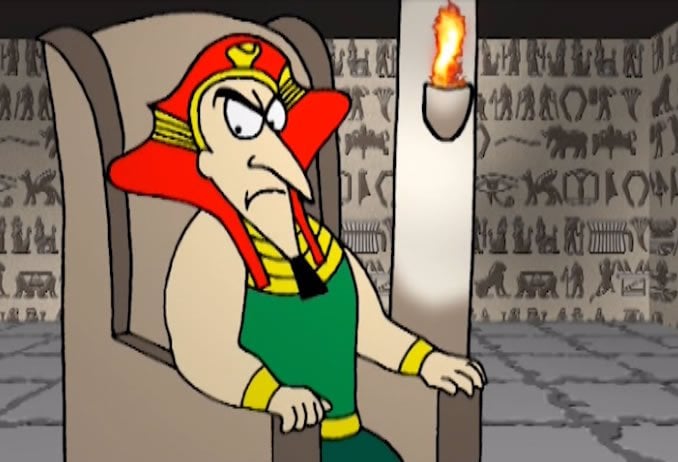ב"ה

Grain from a newly planted crop (Chadash) may not be consumed prior to the offering of the ‘Omer’ in the Temple on the second day of Passover. No grain of the new crop may be brought to the Temple as an offering prior to the ‘Two Loaves’ offered on Shavout. This class will explore some of the fascinating details of these laws and their spiritual dimensions and applications to our lives. (Likutei Sichos volume 32)

The interplay of Halacha and Kabbalah in the thought of Rabbi Shimon
An exploration of Rabbi Shimon Bar Yochai's halachik approach and how it mirrors his mystical outlook. Examples from the laws of Muktzah and intention in regards to work on Shabbos. Also exploring Aggadic passages of the Talmud about Rabbi Shimon.

The Jewish Dating and Marriage Podcast
What does true fun mean to you, and how far would you go to chase the ultimate experience? Join us as we sit down with Rabbi Raleigh Resnick, a dynamic and sought-after teacher and communicator, who lectures across the U.S. and abroad. With his charisma, wisdom, and musical talent he serves as the spiritual leader of the Tri Valley's Jewish community.

Grain from a newly planted crop (Chadash) may not be consumed prior to the offering of the ‘Omer’ in the Temple on the second day of Passover. No grain of the new crop may be brought to the Temple as an offering prior to the ‘Two Loaves’ offered on Shavout. This class will explore some of the fascinating details of these laws and their spiritual dimensions and applications to our lives. (Likutei Sichos volume 32)

Parsha Emor - Sefirat HaOmer
The commandment to count the Omer comes from the verse: "You shall count for yourselves, from the morrow of the Sabbath from the day you bring the Omer as a wave offering seven weeks; they shall be complete" (Leviticus 23:15). The term "Sabbath" in this context refers to the first day of the holiday of Passover and not the weekly Sabbath. However, in some years, when Passover begins on Sabbath, the weeks of the Omer do coincide with the seven-day week. Is there an aspect of extra "completeness" that occurs in such years? (Based on Likkutei Sichos vol. 12 p. 16 and vol. 22 p. 143)

Letters and Numbers of Torah - Emor
“The L‑rd said to Moses: Speak to the Kohanim, the sons of Aaron, and say to them . . .” (Leviticus 21:1) What is the difference between “speak to them” and “say to them”? In Hebrew these two words are “emor” and “amarta”—the first is spelled aleph-mem-reish, while the other is spelled aleph-mem-reish-tav, the only difference being the letter tav. This additional letter symbolizes the difference between a theoretical lesson and a hands-on educational experience.

The underlying principles of the mitzvah of Sefirat HaOmer
This presentation pioneers a novel approach to understanding the underlying principles of the biblical commandment to “Count the Omer.” Following the initial point of departure; demonstrating the need to frame the “counting” as a continuation and natural extension of the original Omer Offering itself – the thesis moves to develop a new look at “Sefirah Secrets” by examining the “Wave” ritual that seems to occupy a position of oversized importance.

An address to children at a Lag BaOmer parade
Rabbi Elazar son of Rabbi Shimon ben Yochai taught: “G-d promises the Jewish people in
exile: ‘I shall never reject them or abhor them to break My covenant with them.’ This is like a man whose bride lives in a leather tanners’ market, where everything reeks. Were she not there, he would never have entered. But because she is there, it smells to him like a spice market, the most beautiful scent in the world.”

Lag B’omer, 5744 • May 20, 1984
Lag B’omer celebrates the Yahrzeit of Rabbi Shimon Bar Yochai, and is a time to draw inspiration from his life’s work. Rabbi Shimon’s Torah study was so great that it was his “occupation,” a level unattained even by his greatest peers. But how, then, is a young child to attempt to emulate him?

Learning Likutei Sichos vol. 27, Tazria sicha 1
Why does childbirth make a woman impure? Why does she need to bring a sin offering? Learn as we examine the status for one who did the purification process, but hasn’t yet brought the needed offering to complete it. A lesson in the urgency to bring Moshia

Learning Likutei Sichos vol. 17, Shemini sicha 3
Understanding Rashi’s commentary on how Moshe conceded to Aaron’s argument, underscores how they represent two conflicting approaches that are both valid, namely truth and kindness. We learn that you should aspire for consistent spiritual connection, but

Learning Likutei Sichos vol. 27, Shemini sicha 2
An analysis of the dialogue between Moshe and Aharon whether the Rosh Chodesh sacrifice, which was offered on the day the Mishkan was inaugurated, should be consumed or burnt (as worded in Rashi vs. the Talmud). This nuanced discussion contains an importa
Get the Chabad.org Video app














































































































